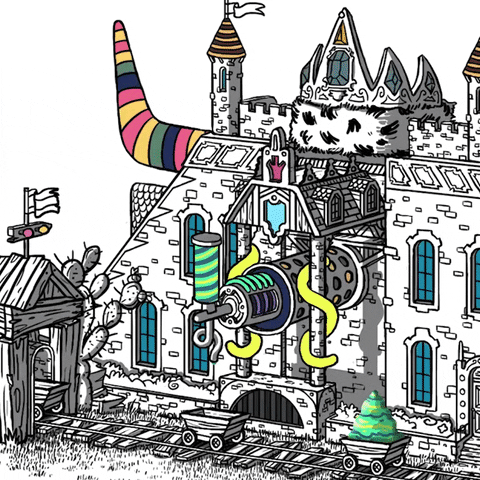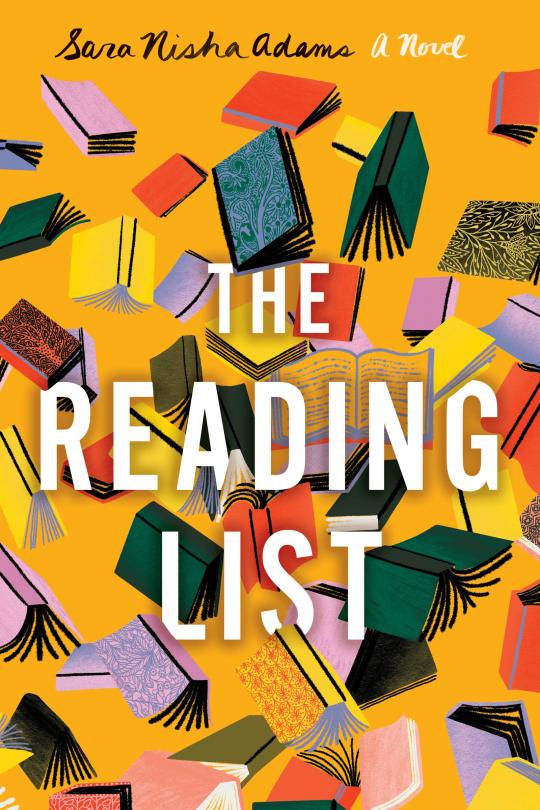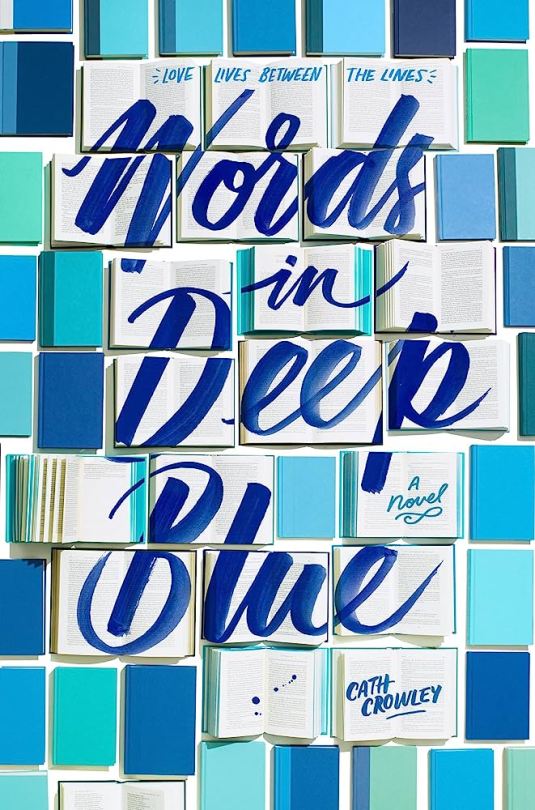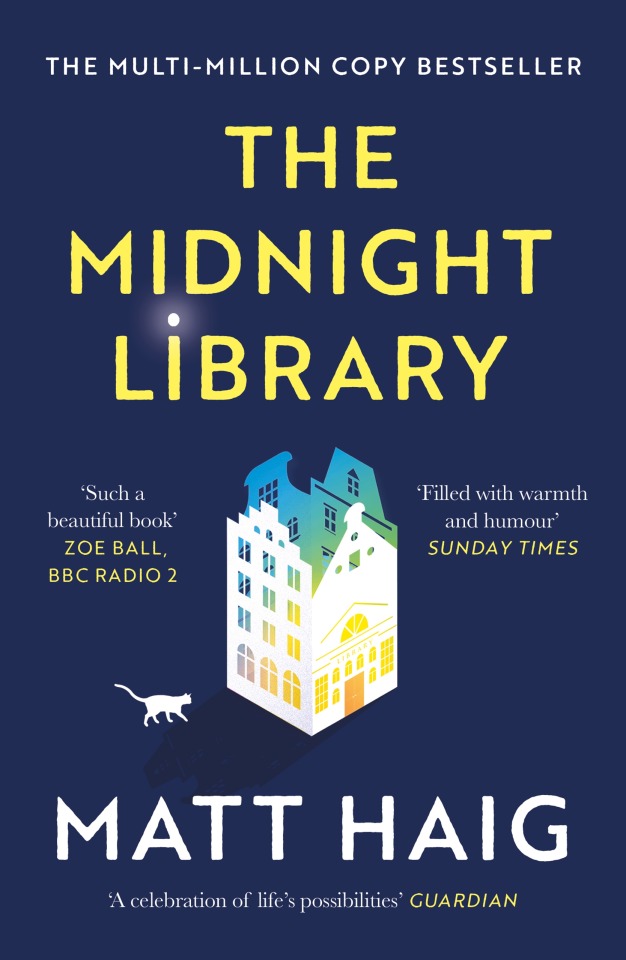#anne fadiman
Text
Books Read in May:
1). Charming Billy (Alice McDermott)
2). The Baby on the Fire Escape: Creativity, Motherhood, and the Mind-Baby Problem (Julie Phillips)
3). The Dressmaker (Beryl Bainbridge)
4). The Pleasing Hour (Lily King)
5). Eat, Memory: Great Writers at the Table (ed. Amanda Hesser)
6). The Mirror & the Light (Hilary Mantel)
7). Disappearing Earth (Julia Phillips)
8). A Life of One’s Own: Nine Women Writers Begin Again (Joanna Biggs)
9). Kitchen Bliss: Musings on Food and Happiness (Laura Calder)
10). A Month in the Country (J.L. Carr)
11). Dinner in Rome: A History of the World in One Meal (Andreas Viestad)
12). Ex Libris: Confessions of a Common Reader (Anne Fadiman)
#my literary life#booklr#book list#writing an absolutely deranged Substack wrap up because that’s how May went#alice mcdermott#julie phillips#beryl bainbridge#lily king#amanda hesser#hilary mantel#laura calder#julia phillips#joanna biggs#j.l. carr#andreas viestad#anne fadiman#adult booklr
11 notes
·
View notes
Text

Maintenant : Ice cream party 🍦🍨
"C'est une grave erreur de supposer que la consommation de crème glacée nécessite un temps chaud."
Anne Fadiman
Gif de Javier Arrès
#gif animé#javier arrès#ice cream#glace#quotes#anne fadiman#humour#funny pics#ice party#fidjie fidjie
37 notes
·
View notes
Text
«The most permanent, and thus to the courtly lover the most terrible, thing one can leave in a book is one’s own words. Even I would never write in an encyclopedia (except perhaps with a No. 3 pencil, which I’d later erase). But I’ve been annotating novels and poems—transforming monologues into dialogues—ever since I learned to read. Byron Dobell says that his most beloved books, such as The Essays of Montaigne, have been written on so many times, in so many different periods of his life, in so many colors of ink, that they have become palimpsests […]
“How beautiful to a genuine lover of reading are the sullied leaves, and worn-out appearance … of an old ‘Circulating Library’ Tom Jones, or Vicar of Wakefield!” wrote Charles Lamb. “How they speak of the thousand thumbs that have turned over their pages with delight! … Who would have them a whit less soiled? What better condition could we desire to see them in?” Absolutely none. Thus, a landscape architect I know savors the very smell of the dirt embedded in his botany texts; it is the alluvium of his life’s work […] And thus, even though I own a clear plastic cookbook holder, I never use it. What a pleasure it will be, thirty years hence, to open The Joy of Cooking to page 581 and behold part of the actual egg yolk that my daughter glopped into her very first batch of blueberry muffins at age twenty-two months!
[…] The trouble with the carnal approach is that we love our books to pieces.»
— Anne Fadiman: "Never Do That to a Book"
10 notes
·
View notes
Text

From Anne Fadiman's "Words On A Flyleaf" in Ex Libris Confessions of a Common Reader.
#how beautiful it is to know that love like this exists#author love hits differently i think#also I'm too single to handle this#literally wrote next to it I don't care it's a digital copy this made me deranged for five days.#anne fadiman#quote#love quotes#book quotes#commonplace quotes#ex libris#george how colt#real love#romance#romantic quotes
6 notes
·
View notes
Text
misc readings
On books and reading!
Reading insecurity, katy waldman, slate
The deep space of digital reading, paul la farge, nautilus
The curse of reading and forgetting, ian crouch, new yorker
Why read the classics, italo calvino (pdf)
How reading is like love: italo calvino on the ecstasy of surrendering to other dimensions of experience, the marginalian
Just read the book already, lauren miller, slate
Treasure the books no one else seems to love, molly templeton, tor
Papyralysis, jacob mikanowski, los angeles review of books
How to nurture a personal library, freya howarth, psyche
Brief notes on the art and manner of arranging one's books, georges perec
If I don't remember what I read, did I read it at all? molly templeton, tor
Never do that to a book, anne fadiman, slate
Mary oliver on how reading saved her life and the greatest antidote to sorrow, the marginalian
On the pleasures and solitudes of quiet books, emily st. john mandel, the millions
Being a better online reader, maria konnikova, new yorker
How 11 writers organize their personal libraries, emily temple, literary hub
How many errorrs are in this essay? ed simon, the millions
Adrienne rich on resistance, the liberating power of storytelling, and how reading emancipates, the marginalian
How we read series, wired
Fiction detective: on literary citation and search engine sleuthing, sophie haigney, the drift
our autofiction fixation, jessica winter, the new york times
3K notes
·
View notes
Link
This week, our editors recommend stories about:
Froggie regrets.
A precious ticket to a Chicago Bulls game.
A fascinating conversation about AI and nature.
The world’s most famous unknown writer.
A chaotic St. Patrick’s Day tradition.
You don’t want to miss this eclectic mix of stories. Check out our Top 5!
#longreads#longreadstop5#nonfiction#journalism#recommended reading#reading list#top 5#frog#pets#chicago bulls#AI#St. Patrick's Day
99 notes
·
View notes
Text
[“At long last, doctors now have—more accurately, ought to have—permission to support in good conscience what human beings, with or without any “professionals” assisting, have been doing for hundreds of thousands of years.
As the American journalist Anne Fadiman describes in her illuminating work on the clash of medical cultures besetting Hmong immigrants to the United States, these Asian women stubbornly resisted some of our “best practices” in favor of their own ways, including “squatting during delivery and refusing permission for episiotomy incisions to enlarge the vaginal opening . . . Many Hmong women were used to being held from behind by their husbands, who massaged their bellies with saliva and hummed loudly just before the baby emerged.” In short, they had tradition, intuition, innate body sense, Nature, and—no doubt unbeknownst to them—the most up-to-date science on their side. Not to mention their husbands, who literally had their backs.
The advent of modern obstetrics has brought much to be grateful for, sparing many women and infants from avoidable suffering, illness, and death. The problem is that, along with its triumphs, and in line with the mechanistic approach of Western medicine in general, obstetrical practice ignores the genuine and natural needs of mothers and babies—in fact, it often runs roughshod over them. Bringing infants into the world is not simply a question of pushing and pulling and cutting and catching. It is a major threshold in human development, and how it is crossed has potentially lifelong consequences. By pathologizing the birth process, present-day medical practice contradicts the wisdom of Nature and of the human body. More damningly, it frequently violates even its own commitments to align itself with science and to, first, “do no harm.”
We need not abandon the great achievements of medical work to honor traditional wisdom, rooted in age-old experience. We can embrace both.”]
gabor maté, from the myth of normal: trauma, illness, and healing in a toxic culture, 2022
149 notes
·
View notes
Text

Hello everyone :) I’m back with a new book list. This month, we’ve got books all about books. Bookception!
As always, please vote for your favourite using the link at the bottom of the post.
Ex Libris: Confessions of a Common Reader, by Anne Fadiman

Anne Fadiman is (by her own admission) the sort of person who learned about sex from her father's copy of Fanny Hill, whose husband buys her 19 pounds of dusty books for her birthday, and who once found herself poring over her roommate's 1974 Toyota Corolla manual because it was the only written material in the apartment that she had not read at least twice.
This witty collection of essays recounts a lifelong love affair with books and language. For Fadiman, as for many passionate readers, the books she loves have become chapters in her own life story. Writing with remarkable grace, she revives the tradition of the well-crafted personal essay, moving easily from anecdotes about Coleridge and Orwell to tales of her own pathologically literary family. As someone who played at blocks with her father's 22-volume set of Trollope ("My Ancestral Castles") and who only really considered herself married when she and her husband had merged collections ("Marrying Libraries"), she is exquisitely well equipped to expand upon the art of inscriptions, the perverse pleasures of compulsive proof-reading, the allure of long words, and the satisfactions of reading out loud. There is even a foray into pure literary gluttony: Charles Lamb liked buttered muffin crumbs between the leaves, and Fadiman knows of more than one reader who literally consumes page corners. Perfectly balanced between humor and erudition, Ex Libris establishes Fadiman as one of our finest contemporary essayists.
The Reading List, by Sara Nisha Adams

Widower Mukesh lives a quiet life in the London Borough of Ealing after losing his beloved wife. He shops every Wednesday, goes to Temple, and worries about his granddaughter, Priya, who hides in her room reading while he spends his evenings watching nature documentaries.
Aleisha is a bright but anxious teenager working at the local library for the summer when she discovers a crumpled-up piece of paper in the back of To Kill a Mockingbird. It’s a list of novels that she’s never heard of before. Intrigued, and a little bored with her slow job at the checkout desk, she impulsively decides to read every book on the list, one after the other. As each story gives up its magic, the books transport Aleisha from the painful realities she’s facing at home.
When Mukesh arrives at the library, desperate to forge a connection with his bookworm granddaughter, Aleisha passes along the reading list… hoping that it will be a lifeline for him too. Slowly, the shared books create a connection between two lonely souls, as fiction helps them escape their grief and everyday troubles and find joy again.
Lost For Words, by Stephanie Butland

Loveday Cardew prefers books to people. If you look closely, you might glimpse the first lines of the novels she loves most tattooed on her skin. But there are things she'll never show you.
Fifteen years ago Loveday lost all she knew and loved in one unspeakable night. Now, she finds refuge in the unique little York bookshop where she works.
Everything is about to change for Loveday. Someone knows about her past. Someone is trying to send her a message. And she can't hide any longer.
Words in Deep Blue, by Cath Crowley

Years ago, Rachel had a crush on Henry Jones. The day before she moved away, she tucked a love letter into his favorite book in his family’s bookshop. She waited. But Henry never came.
Now Rachel has returned to the city—and to the bookshop—to work alongside the boy she’d rather not see, if at all possible, for the rest of her life. But Rachel needs the distraction, and the escape. Her brother drowned months ago, and she can’t feel anything anymore. She can't see her future.
Henry's future isn't looking too promising, either. His girlfriend dumped him. The bookstore is slipping away. And his family is breaking apart.
As Henry and Rachel work side by side—surrounded by books, watching love stories unfold, exchanging letters between the pages—they find hope in each other. Because life may be uncontrollable, even unbearable sometimes. But it’s possible that words, and love, and second chances are enough.
The Midnight Library, by Matt Haig

Somewhere out beyond the edge of the universe there is a library that contains an infinite number of books, each one the story of another reality. One tells the story of your life as it is, along with another book for the other life you could have lived if you had made a different choice at any point in your life. While we all wonder how our lives might have been, what if you had the chance to go to the library and see for yourself? Would any of these other lives truly be better?
Nora Seed finds herself faced with this decision. Faced with the possibility of changing her life for a new one, following a different career, undoing old breakups, realizing her dreams of becoming a glaciologist; she must search within herself as she travels through the Midnight Library to decide what is truly fulfilling in life, and what makes it worth living in the first place.
Please vote here.
#book club#book list#ex libris#the reading list#lost for words#words in deep blue#the midnight library
26 notes
·
View notes
Text
Essay Recommendations
Divination, Fate Manipulation, and Protective Knowledge in and around The Wedding of the Duke of Zhou and Peach Blossom Girl, a Popular Myth of Late Imperial China- Vincent Durand-Dastès
Meaning, Reception, and the Use of Classics: Theoretical Considerations in a Chinese Context - Longxi Zhang
Escapism as a Result of Human Physical Limits- Elizaveta Basharova
The Cult of Donna Tartt: Themes and Strategies in The Secret History - Ana Rita Catalão Guedes
Never Do That to a Book - Anne Fadiman*
Affecting Anger: Ideologies of Community Mobilisation in Early Hindi Novel - Rohan Chauhan*
Why I Write - George Orwell*
The Feminist Critique of Art History - Thalia Gouma-Peterson, Patricia Mathews
In Plato's Cave - Susan Sontag
*On reproduction of art (Chapter 1, Ways of Seeing) - John Berger
*On nudity and women in art (Chapter 3, Ways of Seeing) - John Berger*
Russian Studies of Chinese Traditional Drama and Storytelling Literature: An Overview- Rostislav Berezkin
#dark academia#romantic academic#academia#literature#classic#books & libraries#books#essay#academic essay#writing#reading#Aesthetic#the secret history#dark acadamia aesthetic#george orwell#plato#booklr#book reccomendation
58 notes
·
View notes
Note
light reading recs: I like essay collections when my brain is over-taxed. I like that I can skip around; I don't have to keep track anything for too long. Two collections that I like: How to travel with a salmon & other essays by Umberto Eco and Ex Libris by Anne Fadiman. Also, I think anything by Edward Gorey would be good if you don't mind something a little more macabre/seasonally appropriate? I'd love to hear if you find something you really like in all the great rec's you get if you want to
i also love turning to essays when i'm feeling overwhelmed so these recs sound perfect, thank you so much!! i'll definitely share thoughts on all the incredible recs i've received once i've had a chance to read them <3
#themirrorofink#replies#recs#lit recs#<333#truly you've all commented and sent in so many incredible recommendations. my heart is so full thank you <3
82 notes
·
View notes
Text
𝖦𝖤𝖳 𝖳𝖮 𝖪𝖭𝖮𝖶 𝖬𝖤
& nine people you want to get to know better
Tagged by the lovely @lucarias 💖thank you 💖
Last song: Live Wire - Mötley Crüe
Favorite color: Purple
Currently watching: The Expanse
Last movie: Oppenheimer
Currently reading: Ex Libris - Anne Fadiman
Sweet/savory/spicy: Savory but also just a teeny tiny bit spicy
Relationship status: In a relationship
Current obsession: Definitely not BG3 and HotD 🤡
Last google: Sims 4 half-tile grid flooring keyboard key
Currently working on: Surviving the last two months before the PhD qualifying exam
Tagging: @envergothash @valeskafics @barbieaemond @gortash @pendragora @ripdragonbeans @arcielee @ewanmitchellcrumbs @lauraneedstochill
11 notes
·
View notes
Text
(thanks for the tag @cannabis-major <3)
hardcover or paperback? paper back! simply because they're easier to put into my bookshelves, even though the hardcovers are generally prettier
bookstore or library? i love a good library. my beloved.
bookmark or receipt? lol.
stand alone or series? stand alone. i love a finite narrative! i think now in particular, especially when books do well, authors like...keep going. and i always wonder how much of that is pressure from external sources or how much its really the author knowing there's more story to tell
nonfiction or fiction? nowadays i read mostly non-fiction, but fiction has my heart always
thriller or fantasy? neither!
under 300 pages or over 300 pages? under
children's or ya? i love a YA book. always have, always will.
friends to lovers or enemies to lovers? always friends to lovers. I actually am not a big fan of enemies to lovers at all, i find it...tiring.
read in bed or read on the couch? read outside!
read at night or read in the morning? morning
keep pristine or markup? mark up with post-it notes.
cracked spine or dog ear? lol theres more than one way to love a person, there's more than one way to love a book. there's a great essay by anne fadiman called Never Do That to a Book that i think of offteeeeen. and in her words, i am a carnal lover of books, and ravage them, and fold them and my most loved books look like they are weary travelers and are run down and ragged and barely holding themselves together. so yes,
both.
tagging: besties @femme--de--lettres and @lunapwrites
7 notes
·
View notes
Text
Reading List for 2023
I have settled on my reading list for the year and my reading goal. The books below encompass the books I will choose from (I don't expect to finish all of them). My goal is to read 52 books this year, not including JAFF. I will probably return to this list several times just to discuss how it is going.
Nonfiction
This Changes Everything: Capitalism vs. the Climate by Naomi Klein (2014)
Zami: A New Spelling of My Name by Audre Lorde (1982)
Warrior Poet: A Biography of Audre Lorde by Alexis de Veaux (2006)
The Year of Magical Thinking by Joan Didion (2007)
Blue Nights by Joan Didion (2011)
Let Me Tell You What I Mean by Joan Didion (2021)
A House of My Own: Stories from My Life by Sandra Cisneros (2015)
A Taste of Power: A Black Woman’s Story by Elaine Brown (1992)
Some of Us Did Not Die by June Jordan (2002)
On Call: Political Essays by June Jordan (1998)
The Cultural Politics of Emotion by Sara Ahmed (2004)
Upstream: Selected Essays by Mary Oliver (2016)
Funny in Farsi: A Memoir of Growing Up Iranian in America by Firoozeh Dumas (2004)
The Choice: Embrace the Possible by Edith Eger (2017)
Crying in H Mart by Michelle Zauner (2021)
Ohitika Woman by Mary Brave Bird (1994)
And Our Faces, My Heart, Brief as Photos by John Berger (1991)
Time is the Thing a Body Moves Through by T Fleischmann (2019)
Ex Libris by Anne Fadiman (1998)
The Care Manifesto by The Care Collective (2020)
Dancing at the Edge of the World by Ursula K. Le Guin (1997)
Fiction
A Book of Common Prayer by Joan Didion (1977)
Colorless Tsukuru Tazaki and His Years of Pilgrimage by Haruki Murakami (2014)
On Earth We’re Briefly Gorgeous by Ocean Vuong (2019)
The Story of a New Name by Elena Ferrante (2013)
Those Who Leave and Those Who Stay by Elena Ferrante (2014)
The Story of the Lost Child by Elena Ferrante (2015)
The Lost Daughter by Elena Ferrante (2008)
The Bone People by Keri Hulme (1986)
Gilead by Marilynne Robinson (2006)
Sense and Sensibility by Jane Austen (1811)
Mansfield Park by Jane Austen (1814)
Northanger Abbey by Jane Austen (1817)
Atonement by Ian McEwan (2003)
The Sentence by Louise Erdrich (2021)
The Dictionary of Lost Words by Pip Williams (2021)
The Fellowship of the Ring by J.R.R. Tolkien (1954)
The Two Towers by J.R.R. Tolkien (1954)
The Return of the King by J.R.R. Tolkien (1955)
Babel by R.F. Kuang (2022)
Moonflower Murders by Anthony Horowitz (2020)
The Word is Murder by Anthony Horowitz (2018)
The Unlikely Pilgrimage of Harold Fry by Rachel Joyce (2013)
Poetry
Time is a Mother by Ocean Vuong (2022)
Blue Iris: Poems and Essays by Mary Oliver (2006)
Work
The Hidden Inequities of Labor-Based Contract Grading by Ellen Carillo (2021)
Queer Silence: On Disability and Rhetorical Absence by J. Logan Smilges (2022)
Our Body of Work ed. by Melissa Nicolas and Anna Sicari (2022)
Teachers as Cultural Workers by Paulo Freire (2005)
Living a Feminist Life by Sara Ahmed (2017)
The Cultural Politics of Emotion by Sara Ahmed (2004)
The Vulnerable Observer by Ruth Behar (1997)
Getting Lost by Patti Lather (2007)
Race, Rhetoric, and Research Methods by Alexandria Lockett, Iris D. Ruiz , James Chase Sanchez, and Christopher Carter (2021)
Opening Spaces by Patricia Sullivan and James Porter (1997)
Decolonizing Methodologies by Linda Tuhiwai Smith (2021)
Counterstory by Aja Y. Martinez (2020)
The Courage to Teach by Parker Palmer (2017)
We Make the Road by Walking by Paulo Freire and Myles Horton
Writing with Power by Peter Elbow (1998)
Writing without Teachers by Peter Elbow (1998)
The Anti-Racist Writing Workshop by Felicia Chavez (2021)
26 notes
·
View notes
Text
Eli's endlessly updated Understand the US reading list
These are not perfect books. Some of them are by people with opinions I disagree with. But they all offer insights into why the US is Like This that I think are helpful.
The Sane Society, Erich Fromm
Jesus and John Wayne, Kristin Kobes DuMez
Taking America Back for God, Andrew Whitehead and Samuel Perry
The Family, Jeff Sharlet
Last Call, Daniel Okrent
Caste: The Origins of Our Discontents, Isabel Wilkerson
Letter from a Birmingham Jail, Martin Luther King
What to a Slave is the Fourth of July, Frederick Douglas
A People's History of the United States, Howard Zinn
The Jungle, Upton Sinclair
Cadillac Desert, Marc Reisner
The Spirit Catches You and You Fall Down, Anne Fadiman
Dying of Whiteness, Johnathan Metzl
Evicted, Matthew Desmond
3 notes
·
View notes
Text
Sad But True?
"People who read a paper paper have to flip through a lot of international news before they get to what they think they're interested in. They at least glance at the headlines, and maybe they read a few stories they hadn't expected to. More and more, online news sources will give them only what they wanted in advance. [...] Custom filters are going to make Americans even more ignorant than they already are, which is plenty."
– Anne Fadiman
5 notes
·
View notes
